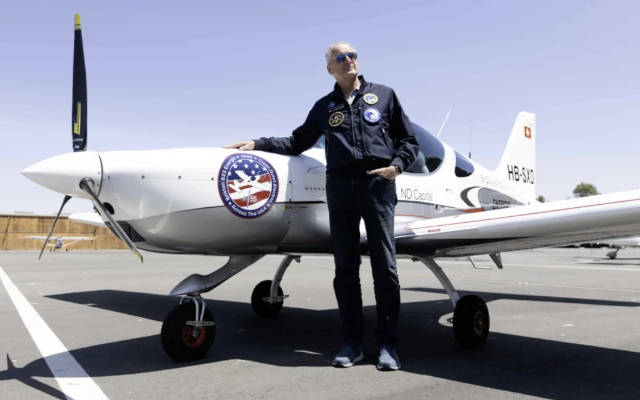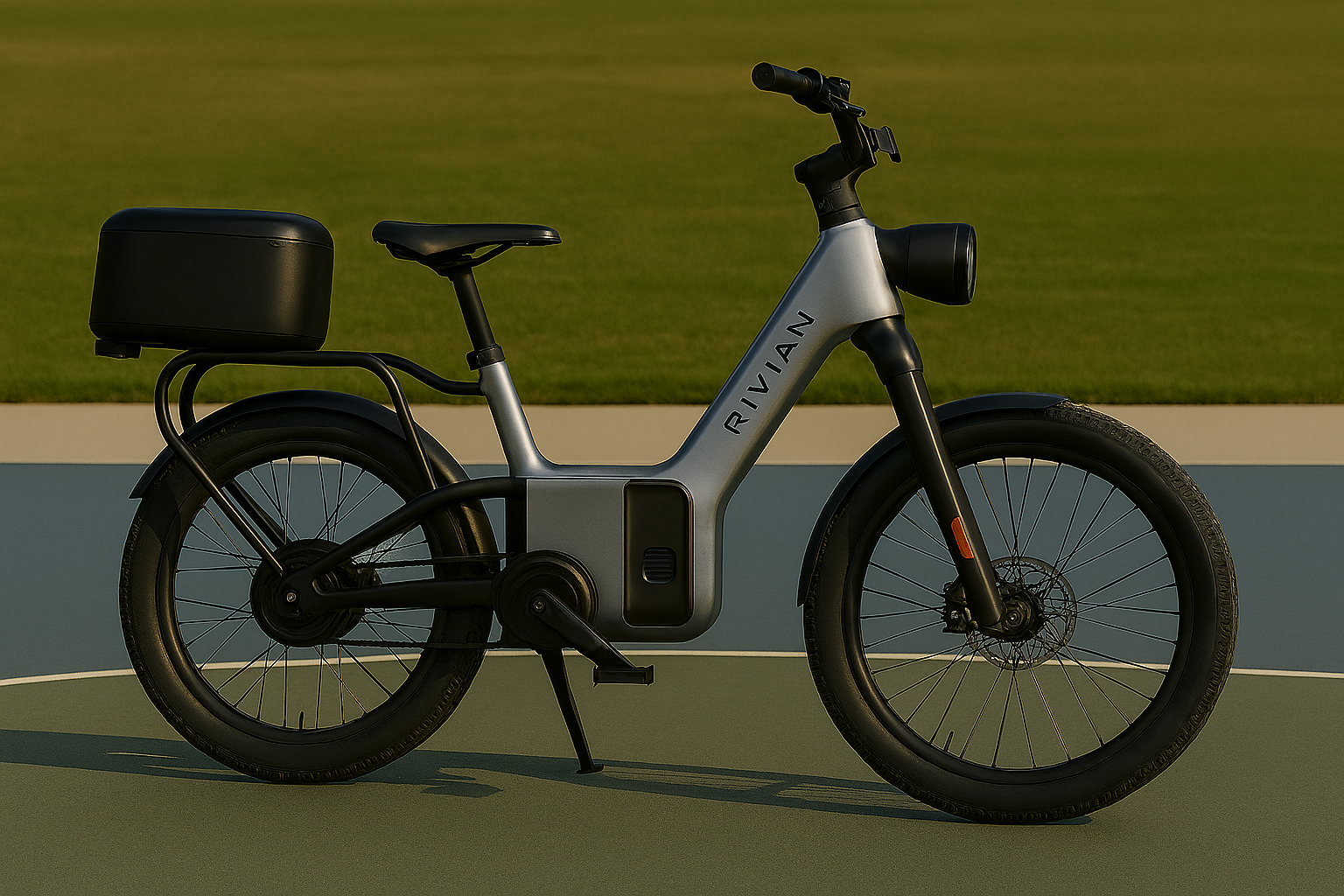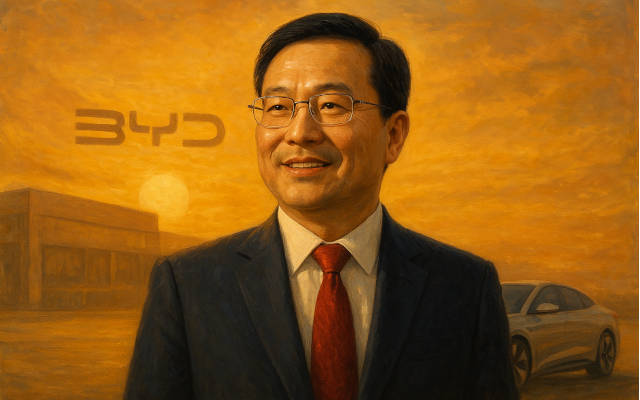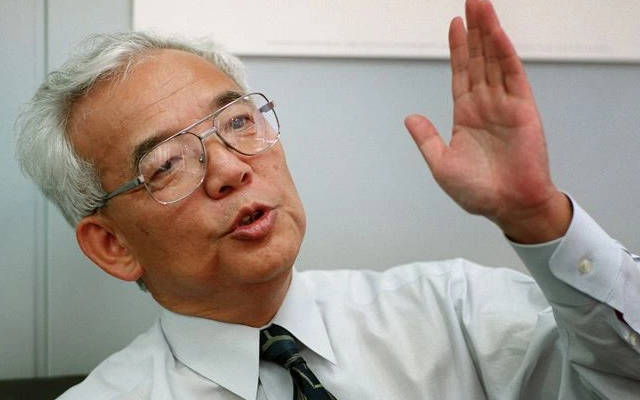 EDITOR'S PICK
EDITOR'S PICK
Wired Wings: Flying the Bristell B23 Energic Electric Aircraft
19 Sep 2025 | Synopsis
 The Bristell B23 Energic, an all-electric trainer aircraft from BRM Aero and H55, offers smooth handling, low operating costs ($8–$9/hr), and a 60-minute flight time under EASA rules. FAA limits U.S. flights to 40 minutes due to stricter reserves, but upgrades are planned. Despite reduced payload from battery weight, performance rivals piston aircraft. Its success signals growing momentum in electric aviation.
The Bristell B23 Energic, an all-electric trainer aircraft from BRM Aero and H55, offers smooth handling, low operating costs ($8–$9/hr), and a 60-minute flight time under EASA rules. FAA limits U.S. flights to 40 minutes due to stricter reserves, but upgrades are planned. Despite reduced payload from battery weight, performance rivals piston aircraft. Its success signals growing momentum in electric aviation.Rivian's Secret E-Bike Surfaces: A Bold New Chapter in Micromobility
18 Sep 2025 | Synopsis
 Leaked images reveal Rivian's upcoming e-bike, developed by its spinoff ALSO Inc. The sleek, silver prototype features full suspension, cargo rack, and inverted fork - blending utility with Rivian's signature design. Backed by a $1B valuation, ALSO aims to disrupt micromobility with a bold October launch. The bike signals Rivian's move beyond trucks, building a broader electric mobility ecosystem for urban riders and lifestyle commuters.
Leaked images reveal Rivian's upcoming e-bike, developed by its spinoff ALSO Inc. The sleek, silver prototype features full suspension, cargo rack, and inverted fork - blending utility with Rivian's signature design. Backed by a $1B valuation, ALSO aims to disrupt micromobility with a bold October launch. The bike signals Rivian's move beyond trucks, building a broader electric mobility ecosystem for urban riders and lifestyle commuters.Why Tesla's Chinese Rival BYD Faces a Raft of Troubles
18 Sep 2025 | Synopsis
 BYD, once China's fastest-growing EV maker and 2024's top seller globally, is now facing serious headwinds. Since May, its domestic sales have begun to shrink while international deliveries aren't enough to compensate. A fierce price war - central to its rapid rise - is under regulatory scrutiny in Beijing. Margins are being squeezed by aggressive discounting, and the company must now navigate cooling demand, tighter oversight, and investor pressure amid declining profits.
BYD, once China's fastest-growing EV maker and 2024's top seller globally, is now facing serious headwinds. Since May, its domestic sales have begun to shrink while international deliveries aren't enough to compensate. A fierce price war - central to its rapid rise - is under regulatory scrutiny in Beijing. Margins are being squeezed by aggressive discounting, and the company must now navigate cooling demand, tighter oversight, and investor pressure amid declining profits.5 Forecasts Early Climate Models Got RIght
18 Sep 2025 | Synopsis
 Early climate models from the 1960s accurately predicted key warming patterns - Arctic amplification, faster land heating, and nighttime temperature rise. Developed by pioneers like Syukuro Manabe, these models proved surprisingly robust. Their success boosts confidence in today's forecasts, which warn of accelerating disruption. What's worrying isn't just the warming - it's how fast it's unfolding, with risks to ecosystems, infrastructure, and global stability.
Early climate models from the 1960s accurately predicted key warming patterns - Arctic amplification, faster land heating, and nighttime temperature rise. Developed by pioneers like Syukuro Manabe, these models proved surprisingly robust. Their success boosts confidence in today's forecasts, which warn of accelerating disruption. What's worrying isn't just the warming - it's how fast it's unfolding, with risks to ecosystems, infrastructure, and global stability.That $1-trillion Tesla Pay Package For Elon Musk Isn't As Bad As You Think. It's Worse
18 Sep 2025 | Synopsis
 Tesla's proposed $1 trillion pay package for Elon Musk ties rewards to extreme goals like an $8.5 trillion market cap and mass deployment of robotaxis and humanoid bots. Critics say it's not just excessive—it's structurally reckless, concentrating power without time-commitment safeguards and risking distorted priorities. The LATimes argues this isn't bold innovation, but a governance failure with long-term risks to shareholders and corporate accountability.
Tesla's proposed $1 trillion pay package for Elon Musk ties rewards to extreme goals like an $8.5 trillion market cap and mass deployment of robotaxis and humanoid bots. Critics say it's not just excessive—it's structurally reckless, concentrating power without time-commitment safeguards and risking distorted priorities. The LATimes argues this isn't bold innovation, but a governance failure with long-term risks to shareholders and corporate accountability.
 Si Exclusive
Si Exclusive
Hydrogen's Flight Path: Fuel Cells, Turbines, and the Economics of Clean Aviation
10 Oct 2025 |  Aviation is shifting from Jet A to four fuel systems: electricity, hydrogen (fuel cell and combustion), SAF, and petroleum. Fuel cells suit short-haul aircraft; hydrogen combustion may power long-range jets. SAF bridges legacy fleets. Hydrogen costs - $5-$7/kg today, possibly $2/kg by 2040 - impact ticket prices and infrastructure decisions. Airport authorities, airlines, and governments will share deployment costs. Each fuel has distinct environmental pros and cons shaping aviation's net-zero future.
Aviation is shifting from Jet A to four fuel systems: electricity, hydrogen (fuel cell and combustion), SAF, and petroleum. Fuel cells suit short-haul aircraft; hydrogen combustion may power long-range jets. SAF bridges legacy fleets. Hydrogen costs - $5-$7/kg today, possibly $2/kg by 2040 - impact ticket prices and infrastructure decisions. Airport authorities, airlines, and governments will share deployment costs. Each fuel has distinct environmental pros and cons shaping aviation's net-zero future.
Ferrari Elettrica: Electrified, Not Tamed
09 Oct 2025 |  Ferrari's Elettrica EV delivers over 1,000 hp via quad motors, hitting 0-100 km/h in 2.5s with a 330+ mile range. Its 122 kWh battery sits low for balance, paired with active suspension and rear steering. Designed by LoveFrom, the four-door GT aims to preserve Ferrari's emotional DNA. Priced around $580K, it launches in 2026 in Europe and the U.S., with hybrids and ICE models still dominating until 2030
Ferrari's Elettrica EV delivers over 1,000 hp via quad motors, hitting 0-100 km/h in 2.5s with a 330+ mile range. Its 122 kWh battery sits low for balance, paired with active suspension and rear steering. Designed by LoveFrom, the four-door GT aims to preserve Ferrari's emotional DNA. Priced around $580K, it launches in 2026 in Europe and the U.S., with hybrids and ICE models still dominating until 2030
Are Self-Driving Cars Safer Than Humans? The Data May Surprise You
09 Oct 2025 |  Studies show autonomous vehicles (AVs) are generally safer than human drivers, avoiding most rear-end and broadside crashes and performing better in poor weather. However, AVs struggle with complex maneuvers like unprotected turns and low-light conditions. If AVs are just 10% safer, they could prevent 600,000 U.S. deaths over 35 years. As EVs become autonomy platforms, safety depends on how well they interpret real-world scenarios
Studies show autonomous vehicles (AVs) are generally safer than human drivers, avoiding most rear-end and broadside crashes and performing better in poor weather. However, AVs struggle with complex maneuvers like unprotected turns and low-light conditions. If AVs are just 10% safer, they could prevent 600,000 U.S. deaths over 35 years. As EVs become autonomy platforms, safety depends on how well they interpret real-world scenarios
 11 Oct 2025 15:40:12 UTC |
RECENT PODCASTS
BYD Soars - Cheaper Tesla Models - The Bolt is Back - Rivian
SEARCH RSSTREAM
 43 New Postings In Past 24 Hours
43 New Postings In Past 24 Hours
Category:mobility
Region:NoAmerica
Date:11 Oct 2025
Category:autonomy
Region:NoAmerica
Date:11 Oct 2025
Category:finance
Region:NoAmerica
Date:11 Oct 2025
Category:finance
Region:NoAmerica
Date:11 Oct 2025
Category:mobility
Region:NoAmerica
Date:11 Oct 2025
Category:mobility
Region:AsiaPacific
Date:11 Oct 2025
Category:mobility
Region:AsiaPacific
Date:11 Oct 2025
Category:mobility
Region:Europe
Date:11 Oct 2025
Category:mobility
Region:NoAmerica
Date:11 Oct 2025
Category:finance
Region:NoAmerica
Date:11 Oct 2025
Category:mobility
Region:NoAmerica
Date:11 Oct 2025
Category:autonomy
Region:NoAmerica
Date:11 Oct 2025
Category:mobility
Region:NoAmerica
Date:11 Oct 2025
Category:mobility
Region:Europe
Date:11 Oct 2025
Category:finance
Region:NoAmerica
Date:11 Oct 2025